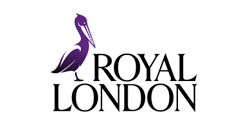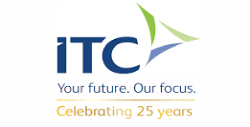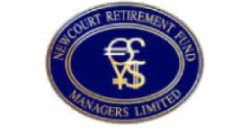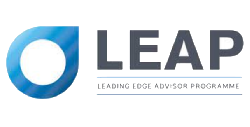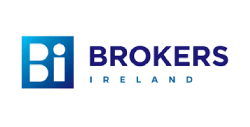Investment Rules

Important information:
The value of investments and the income from them, can go down as well as up, so you may get back less than you invest.
IT’S the start of a new year, so the perfect time to set-up some new investment mantras to live by. Here are five to start with.
No. 1 – Start budgeting for higher living costs right now
Higher living costs are now here and show no sign of going down any time soon. After the first interest rate rise in more than three years, the cost of borrowing is going up. Couple that with ongoing price hikes that saw the cost of living surge by 5.5% in the 12 months to December – the highest level since September 2011 – and you know we are all going to feel it.
The growth in the rate of price rises since just March has been remarkable and reports of a record number of manufacturers hiking prices suggests the squeeze on our pockets has much further to go.
What this means is that your own budget needs extra attention and careful planning, especially given prices for everyday items like fuel, energy and food are already peaking. Factor in the change in taxation of former AMRF Funds for Retirees and Nil Interest rates on Savings and things are only going to get even worse.
No surprise then that three-fifths (60%) of adults are worried about their finances following the Autumn Budget, with concerns including inflation (53%), the economy (50%) and supply-chain issues (35%) the most popular.
Savers and investors have a tough task on their hands if they want their money to keep up with inflation. Investing in cash is still a no-no; even if we see further rate rises, because the gains will be too small to balance out the impact of inflation. Instead, you need to look longer-term at the stock market to really have a chance to make your money grow.

No 2 – Be honest with yourself about where you’re at financially
Complete no-holds barred transparency is the only way to start the new year. Be honest with yourself about how much you earn, what you owe and where your money goes. Make a note of your take-home pay then offset that against your regular outgoings. Include variables such as food, drink, holidays, Christmas and birthdays. And don’t forget credit cards and loans.
You will soon get a good idea of whether you’re spending within or way beyond your means.
No 3 – Check your investments are doing their job
We all invest for a purpose. Whatever the end-goal, be it retirement, wedding, school fees, new house, for most of us that purpose is to grow our money. So, how’s yours doing?
While you don’t want to tinker with your investments for the sake of it, that doesn’t mean you shouldn’t keep an eye on how they are doing. Markets move and times change and making sure that you are still on track is better done as you go along. Just a quick review of your portfolio, a check to see whether you can top-up your investment pot with a bit of spare lockdown cash is a good idea.
If you like stocks, but are not brave enough to pick the ones for you, there are lots of diversified Funds available. Talk to your Financial Adviser about what would suit you. Remember to ask about which funds would do better in an inflationary period, and what would muddle through a potential stock-market correction better. These may not concern you in the short term, but best be prepared. If you would get particularly queasy at the thought of losing a large chunk of your funds in a crash, ask about “Protected Funds”, Funds that are backed by 80-90% Capital Protection from some of the bigger banks.

Investing in a range of stocks or funds and keeping some cash in the bank for that proverbial ‘rainy day’ also keeps anxiety around your finances in check and ensures you have access to money tomorrow, should you need it, while also keeping a step ahead when it comes to looking after your financial future.
No 4 – Stay focused
Setting up a regular monthly investment that won’t leave a gaping hole in your cashflow, is the best way to stay on track with minimal effort required. With a New Ireland Saver you can save from €100 a month, with ease access with online signup through your Financial Adviser. Zurich, Aviva and Irish Life also have good regular Savings Plans.
Just by adopting a positive savings habit, where you invest a small sum on a regular basis, you remove some of the worry about not saving enough (or at all) and remove the anxiety that inevitably comes with picking the ‘right’ moment to invest a larger amount.
Investing in a range of stocks or funds and keeping some cash in the bank for that proverbial ‘rainy day’ also keeps anxiety around your finances in check and ensures you have access to money tomorrow, should you need it, while also keeping a step ahead when it comes to looking after your financial future.

No 5 – Remember to keep an eye on the road up ahead
Living for today is one thing but you also have to keep an eye on the future. Are you saving enough for yours? Will you be able to afford the cost of care or supporting loved ones financially?
Make time to look at your retirement goals and map these against your income and current job security, so you have a better idea of where you are today and where you need to get to. You can then use that to draw up a financial plan to do what you need to, to boost your retirement savings in 2024.
None of us knows what is around the corner. But for your own financial wellness and your mental health, taking positive steps now will boost your resilience, come what may. And make 2024 a more positive year for you and your finances.
Important information: Investors should note that the views expressed may no longer be current and may have already been acted upon. Tax treatment on Savings Plans and Pensions depends on individual circumstances and all tax rules may change in the future. Withdrawals from a pension product will not normally be possible until you reach age 60. This information is not a personal recommendation for any particular investment. If you are unsure about the suitability of an investment you should speak to one of Clevermoney’s Advisers or an authorised financial adviser of your choice.
Joe Carroll
Joe Carroll is Practice Director with Clevermoney and, being a Tech Nerd, enjoys providing financial direction to Irish Tech Industry Professionals.










